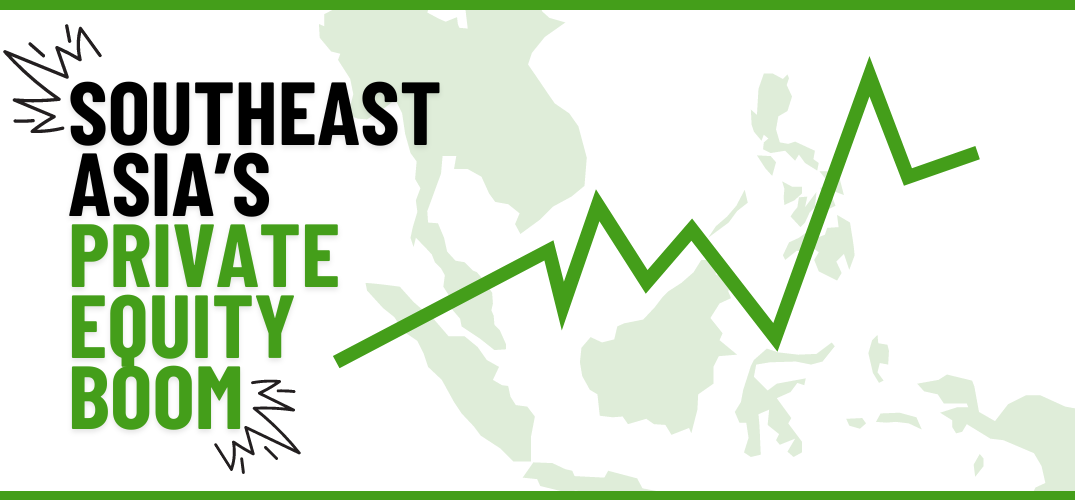Playbook to Identify the Next Unicorn Startup in Southeast Asia
Startup Southeast Asia

The startup ecosystem in Southeast Asia has been on the rise in recent years, with the region producing several unicorns - privately held companies valued at over $1 billion. Some of the well-known unicorns in the region include Grab, Gojek, and Tokopedia. With Southeast Asia's growing population, increasing internet penetration, and rising middle class, the region presents vast opportunities for startups to thrive. However, with so many startups emerging, it can be challenging to identify the next unicorn. In this article, we will explore how to identify the next unicorn startup in Southeast Asia.
Understand the Market
The first step in identifying the next unicorn startup in Southeast Asia is understanding the market. The Southeast Asian market is diverse, comprising various countries with different cultures, languages, and regulations. It is essential to understand the unique challenges and opportunities in each market. Startups that are successful in one country may not necessarily be successful in another.
To understand the market, startups need to conduct market research to identify gaps and opportunities. They need to understand consumer behavior, preferences, and pain points. This information can help them develop products or services that cater to the needs of the market.
Additionally, startups need to be aware of the regulatory environment in each market. Regulations can impact a startup's ability to operate and grow. Startups need to ensure that they comply with all the relevant regulations in the markets they operate.
Have a Strong Value Proposition
Having a strong value proposition is crucial for startups looking to become the next unicorn. Startups need to offer something unique and compelling that solves a real problem. A strong value proposition can help a startup stand out in a crowded market and attract customers.
Startups need to have a clear understanding of their target audience and their needs. They need to develop products or services that cater to these needs and offer a solution that is better than what is currently available in the market. Startups need to differentiate themselves from their competitors and offer a unique selling point.
A strong value proposition can also help startups attract investors. Investors are always looking for startups that offer something unique and have the potential to disrupt the market.
Scalability
Scalability is another critical factor in identifying the next unicorn startup in Southeast Asia. Startups need to have the potential to grow rapidly and reach a large market. A scalable business model can help startups achieve this.
Startups need to develop a business model that allows them to expand quickly without incurring high costs. This can be achieved through technology, automation, or outsourcing. Startups need to leverage technology to scale their operations and reach a broader market.
Having a scalable business model can also help startups attract investors. Investors are looking for startups that have the potential to grow rapidly and become industry leaders.
Strong Leadership
Strong leadership is essential for startups looking to become the next unicorn. Startups need to have a team of experienced and talented leaders who can guide the company through its growth stages. Strong leadership can help startups navigate challenges and make sound decisions.
Startups need to have a clear vision and mission that is communicated effectively to the team. The leadership team needs to inspire and motivate the team to achieve the company's goals. Startups need to have a culture of innovation and experimentation, where failure is seen as a learning opportunity.
Additionally, startups need to have a diverse leadership team. Diversity brings different perspectives and ideas to the table, which can help startups make better decisions.
Investors
Investors play a crucial role in identifying the next unicorn startup in Southeast Asia. Investors are always on the lookout for startups that have the potential to become industry leaders. Startups need to attract the right investors who can provide the necessary funding and support to help them grow.
Investors can also provide startups with valuable insights and guidance. They have experience working with other successful startups and can provide startups with mentorship and access to industry networks.
Startups need to identify the right investors who share their vision and mission. They need to do their due diligence and research potential investors before approaching them. Startups need to be prepared to pitch their ideas and demonstrate how their business model can generate returns for investors.
Innovative Technology
Innovative technology is a critical factor in identifying the next unicorn startup in Southeast Asia. Startups need to leverage technology to create innovative products or services that cater to the needs of the market. Innovative technology can help startups differentiate themselves from their competitors and provide a unique value proposition.
Startups need to stay up to date with the latest technological developments and trends. They need to be willing to experiment with new technologies and incorporate them into their business model. Startups need to have a culture of innovation, where new ideas are encouraged and experimentation is welcomed.
Additionally, startups need to have a team of talented and experienced developers who can develop and maintain their technology infrastructure. Startups need to have a robust technology stack that is scalable and flexible enough to accommodate future growth.
Partnerships and Collaborations
Partnerships and collaborations can help startups identify new opportunities and accelerate their growth. Startups need to build relationships with other businesses, organizations, and industry players. These relationships can provide startups with access to new markets, technologies, and resources.
Startups need to identify potential partners who share their vision and mission. They need to be willing to work together and collaborate to achieve their goals. Startups need to be open to new ideas and opportunities and be willing to adapt to changing market conditions.
Additionally, startups need to have a strong network of mentors, advisors, and supporters who can provide guidance and support. Startups need to be willing to seek advice and learn from others who have gone through similar experiences.
Conclusion
Identifying the next unicorn startup in Southeast Asia requires a combination of factors. Startups need to have a strong value proposition, a scalable business model, innovative technology, and a diverse and experienced leadership team. They need to understand the market and regulatory environment and build partnerships and collaborations with other businesses and organizations.
At WOWS Global, we understand the challenges that startups face in the region. We offer a range of services that can help startups grow and succeed. Contact us today at contact@wowsglobal.com to learn more about how we can help you identify new opportunities and accelerate your growth.
Related Posts
-

Startup MVP Lean Startup Feedback
The MVP: Turning Bare Bones Into Billion-Dollar Dreams (Or a Glorified Prototype)
The MVP (Minimum Viable Product) is your scrappy, bare-bones version of your grand vision. Learn how to strike the right balance between too minimal and too polished while preparing for an MVP launch in this startup guide. -

Southeast Asia SME Lending Mergers Sustainability
Southeast Asia’s Investment Frenzy in September 2024: Startups Thriving Across Sectors
September 2024 has been a landmark month for Southeast Asia’s startup scene, with significant investments across fintech, AI, sustainability, and EVs. Learn how these industries are driving the region’s innovation. -

Papaya startup hospitality tech Southeast Asia
Papaya's Expansion: A Fresh Take on Hospitality Tech in Southeast Asia
Papaya, a fintech startup from Thailand, is revolutionizing the hospitality industry in Southeast Asia. With fresh funding from BEENEXT and A2D Ventures, Papaya is ready to scale its digital ordering and payment platform across the region. -

SAFE agreement Thailand startups Southeast Asia
Surfing the SAFE Wave: How Thailand's Startups Are Riding High
Thailand’s startups are catching the wave of innovative funding with SAFEs. Learn how these agreements are transforming early-stage financing in the region, the benefits they offer, and the legal challenges they present. -

Startups Southeast Asia Risk Assessment
Risk Assessment: How to Evaluate High-Growth Potential in Southeast Asian Startups
Southeast Asia is a booming startup ecosystem with vast opportunities and risks. This guide dives into the critical factors investors should consider to evaluate high-growth potential in the region's startups. -

Southeast Asia Startup Ecosystem
Exploring Southeast Asia's vibrant Startup Ecosystem
Southeast Asia is home to a bustling startup ecosystem that is rapidly evolving and capturing the attention of investors and entrepreneurs alike. With its thriving economies, growing middle-class population, and increasing internet and smartphone penetration rates, the region offers immense potential for innovation and business growth.
